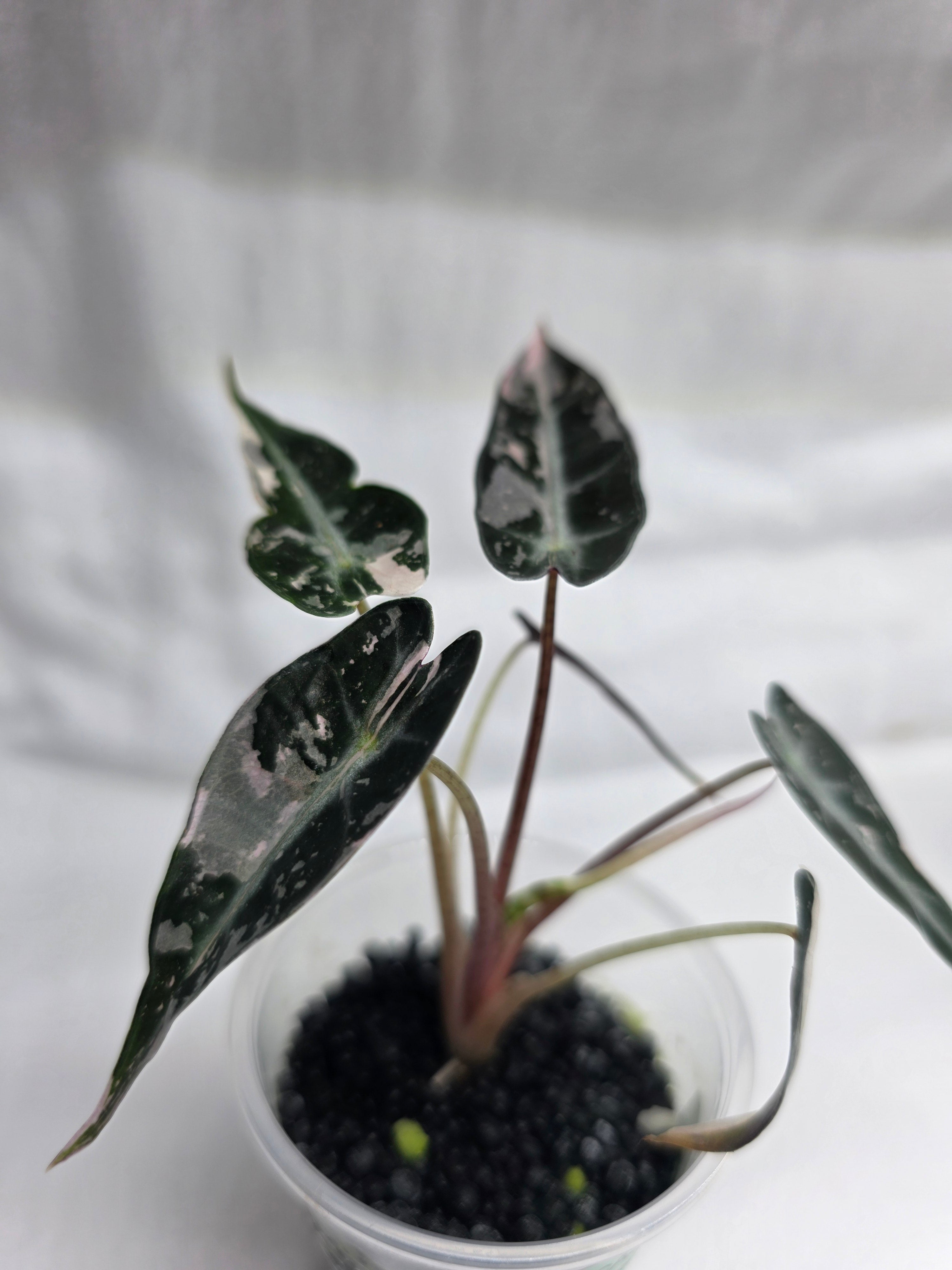
Alocasia ‘Pink Bambino’ – Variegated
🌿 Alocasia ‘Pink Bambino’ – Variegated
The Alocasia ‘Pink Bambino’ Variegated is a rare and stunning jewel Alocasia, loved for its compact size, rich dark green leaves, and soft pink to blush-toned variegation. Its narrow, arrow-shaped foliage features delicate splashes of pastel pink, cream, and mint, creating a unique, collectible plant for small spaces or terrariums. The ‘Pink Bambino’ combines ease of care with bold color, making it perfect for collectors who want something truly special.
🪴 You will receive a plant similar in size and variegation to the one shown in the photo. Each plant is hand-selected for healthy roots and attractive variegation.
⚠️ Note on Natural Variation, Algae & Growing Conditions
Variegation will differ from plant to plant, with each showing a unique mix of pink, mint, and cream patterning. All plants will be consistent in size and quality with the photo example.
Plants are shipped in a Fluval and perlite mix to promote root health and gentle acclimation. Green algae may be present on the surface—this is common in high-humidity growing environments and is harmless.
🌡️ Grown in 70–75°F temperatures and 70–75% humidity, these plants should be slowly acclimated to normal household conditions over 5–7 days.
🛠️ Care Instructions
Light:
Bright, indirect light is best. Direct sun can scorch leaves and fade variegation.
Water:
If kept in the Fluval/perlite mix, use a self-watering pot or set the plant above a shallow nutrient-enriched water reservoir to provide consistent bottom wicking. Do not let the substrate dry out completely.
Humidity:
Prefers 60–75% humidity. Use a dome or humidifier during acclimation if needed.
Temperature:
Ideal range is 70–80°F. Protect from drafts and temperatures below 60°F.
Soil (if repotting):
When transitioning out of the shipping medium, use a chunky, well-draining aroid mix (coco coir, bark, perlite).
Fertilizer:
Feed every 4–6 weeks during the growing season with a balanced liquid fertilizer at ¼–½ strength.
Dormancy Note:
Growth may slow in winter or low-light conditions. Reduce watering and pause fertilizing until new growth appears.





